以牙还牙 Tooth for Tooth
出埃及记 Exo 21:12–36
Remember these points
I put these points at the top of my sermon-prep template to remind myself every week:
- Show that main point of passage relates to Jesus and his saving work
- (1 Cor 1:18) A truly gospel-centred message will not be acceptable in a synagogue or mosque
- Did I proclaim the gospel as the headline news of the sermon, rather than as a “by the way…”?
- Unbelievers are called to repent, believe, and be saved
- Believers are encouraged to abandon their old self, renew their minds, put on the new self in Christ
- Preach simple sermons, so that God’s people can see Christ more clearly and love him more dearly
News
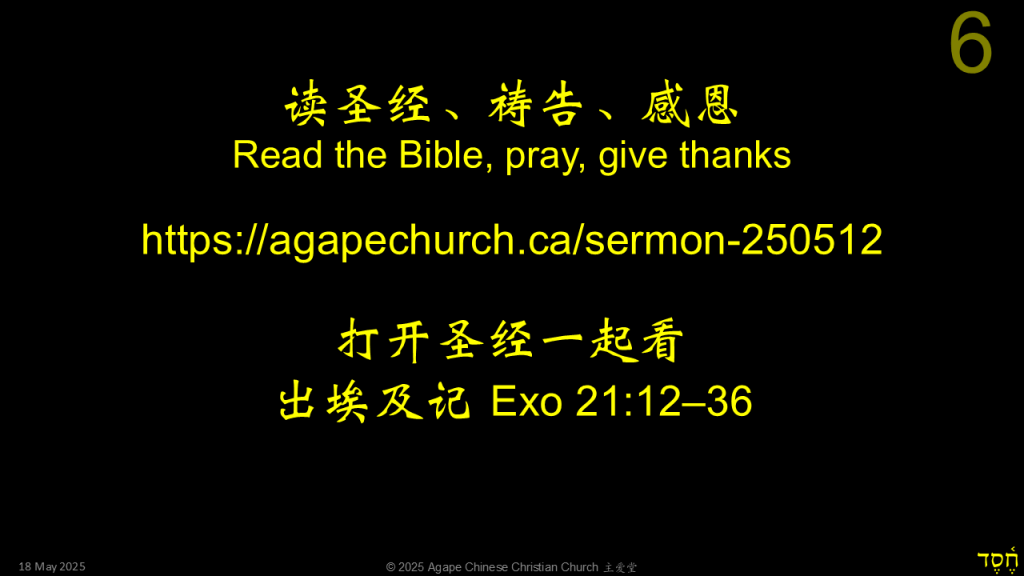
Hook
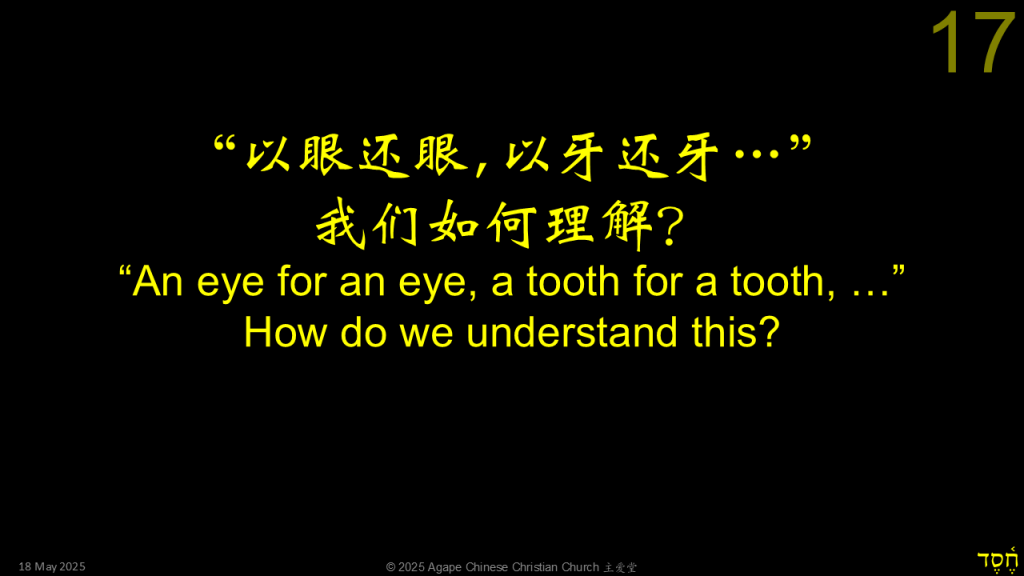
What does “An eye for an eye,” or “a tooth for a tooth” mean?
这并不意味着要施加与伤害相同的惩罚.
It doesn’t mean to exact the same punishment as the injury.
这意味着惩罚必须与罪行成比例
It means the punishment must be proportional to the crime.
在某些文化中,惩罚与罪行严重不成比例,
例如,因为一个男孩饿了偷了一块面包,你就砍掉他的手。
In some cultures, the punishment is way out of proportion to the crime,
like cutting off a boy’s hand because he was hungry and stole a loaf of bread.
或者,因为某人侮辱了你(在泰国,如果你侮辱了皇室成员,就会被处决),你就被处决。
Or executing someone because he or she insulted you (this is the case if you insult the royalty in Thailand).
中国古代也有类似的刑罚:
Five Punishments of ancient China ~2070 BC–~250 BC
五刑 – 维基百科,自由的百科全书
Passage

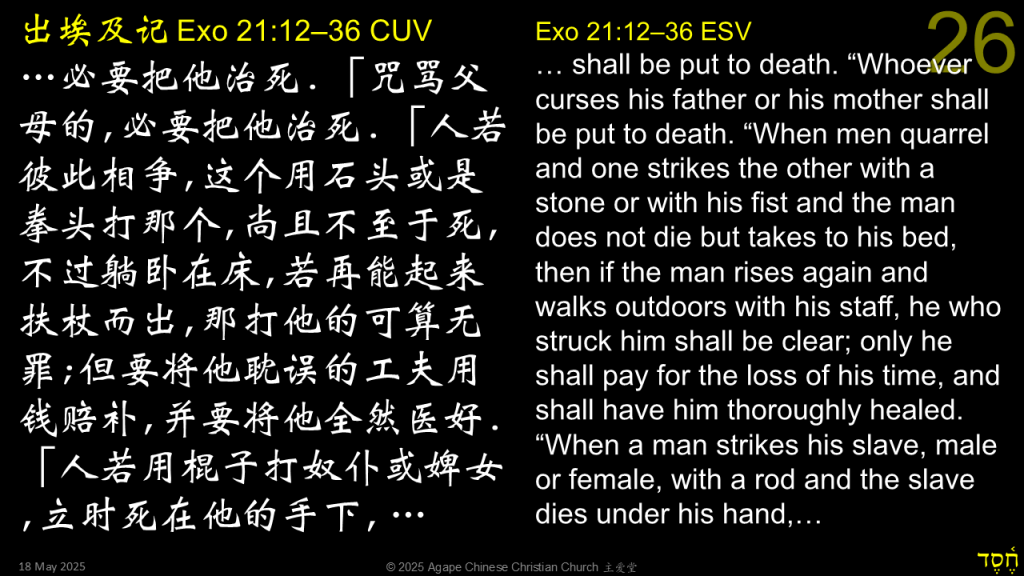

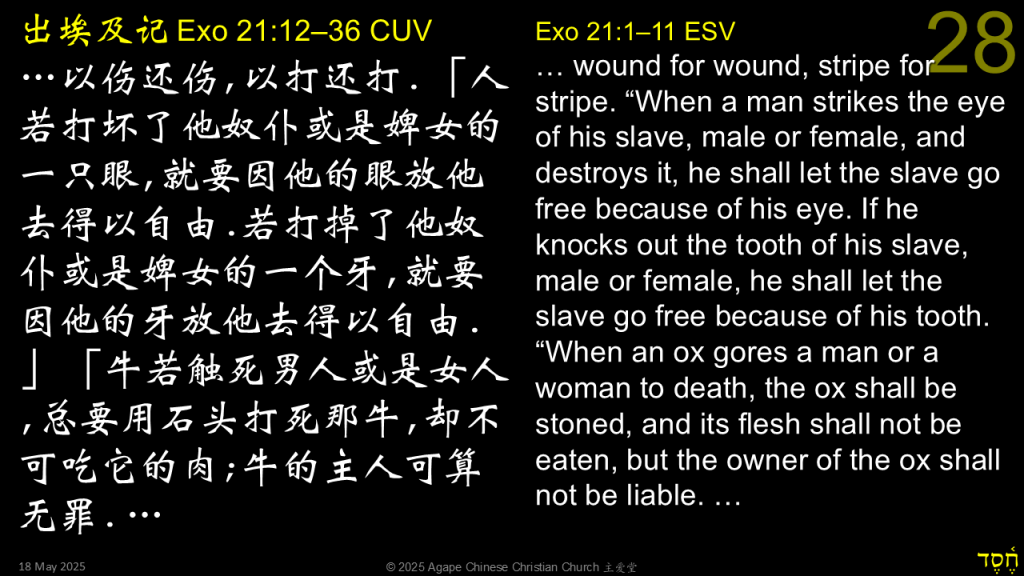
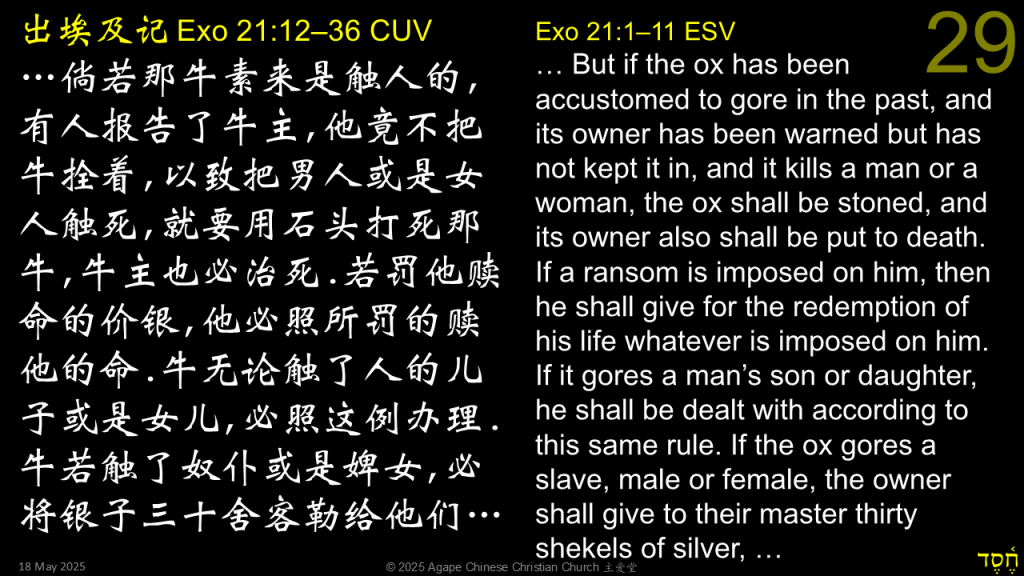

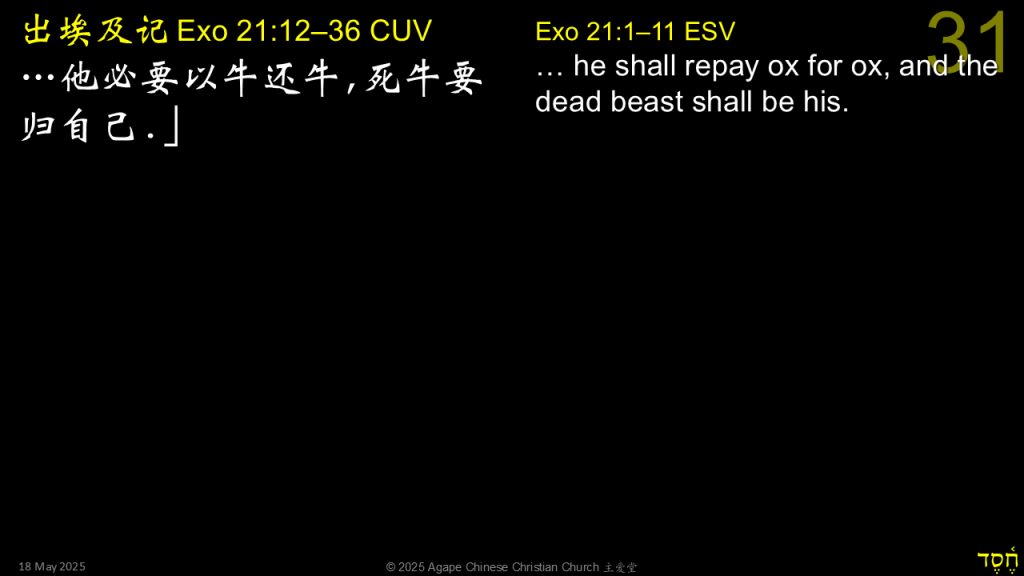
Outline
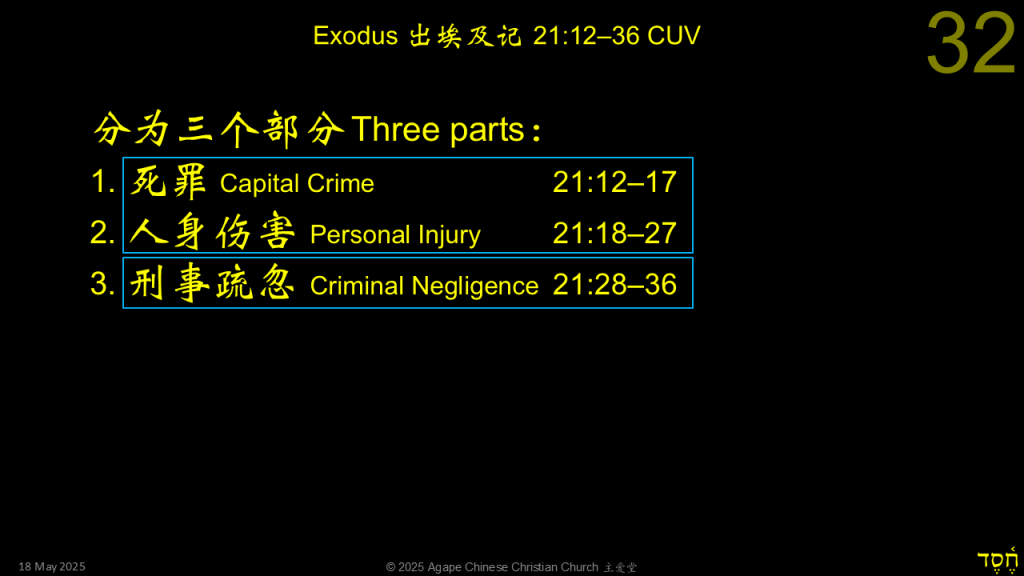
a
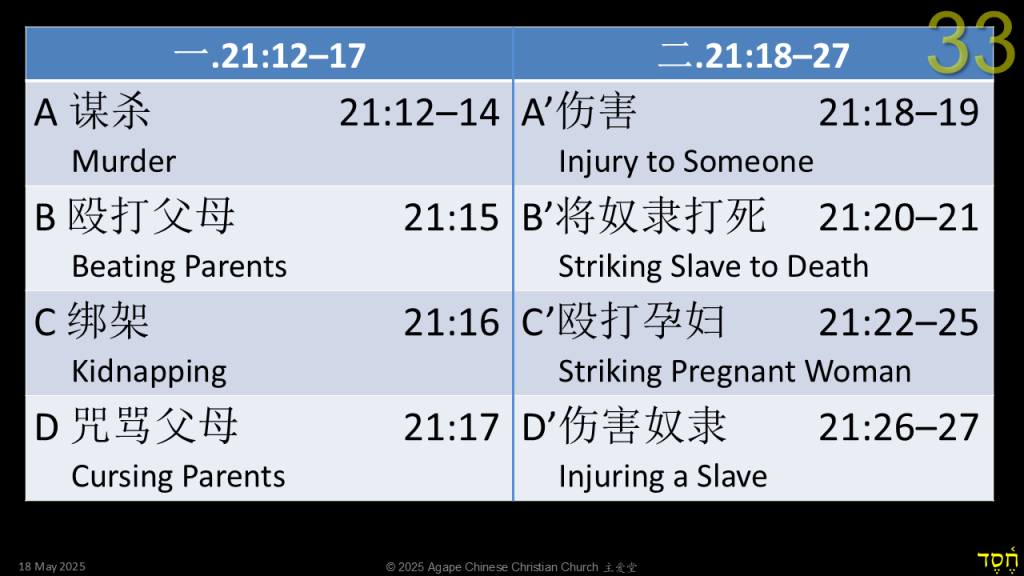
s
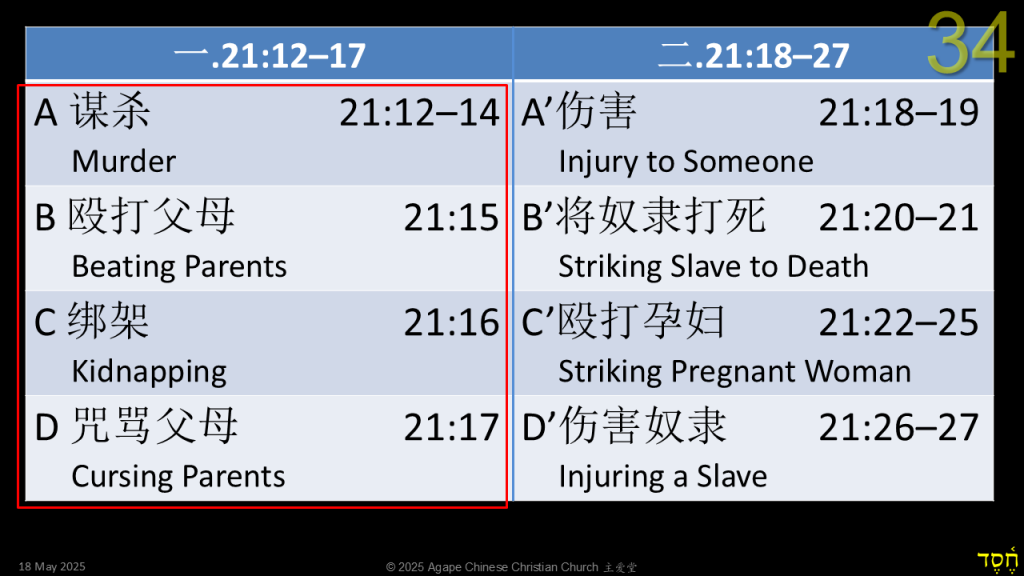
f
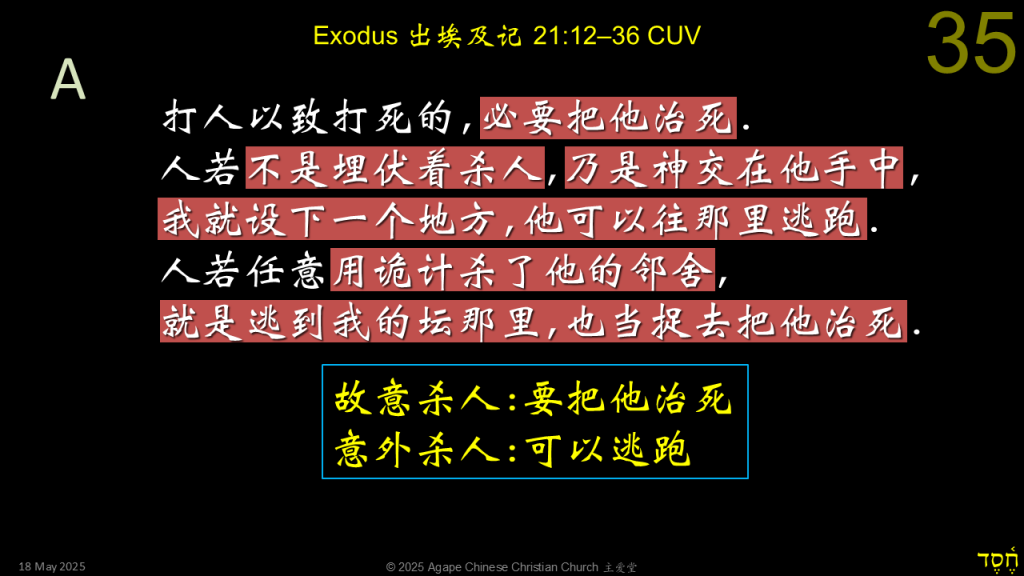
“God let him fall into his hands:” This simply means it’s outside of human control, it’s not premeditated murder (NET).
“I will appoint for you a place”: This will be detailed in the book of Numbers, the “cities of refuge.”
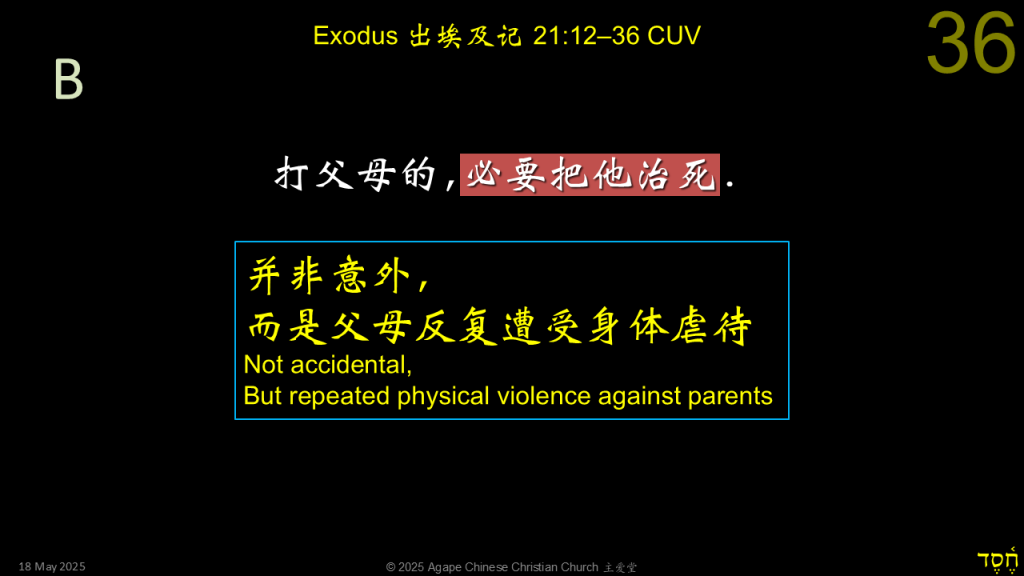
E.g., if a toddler is upset and strikes out at the mom, we won’t think of putting the toddler to death!
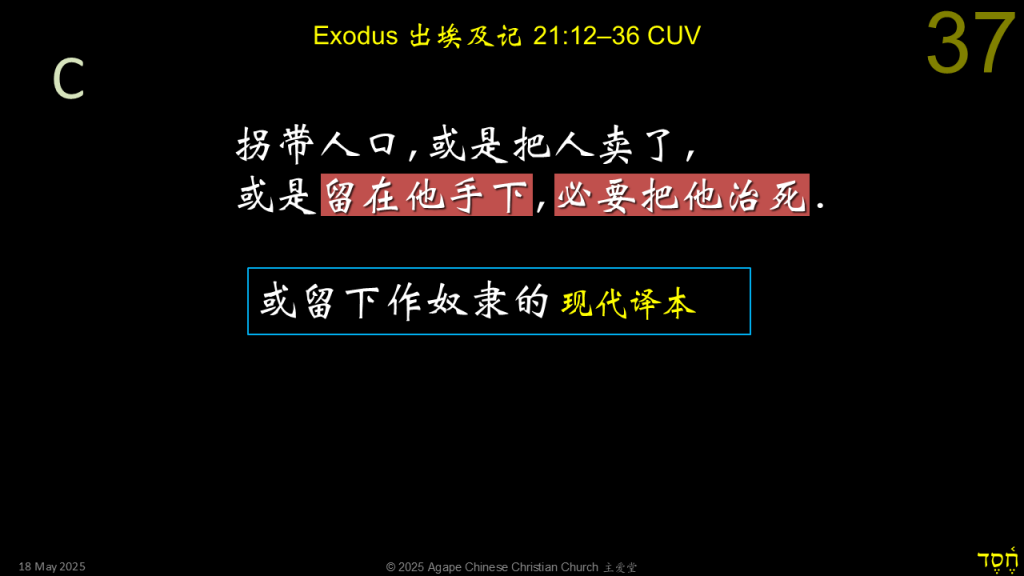
The CUV translation is a bit vague, what it means is you kidnap someone and use that person as your slave.
Can we think of a Bible story where kidnapping took place?
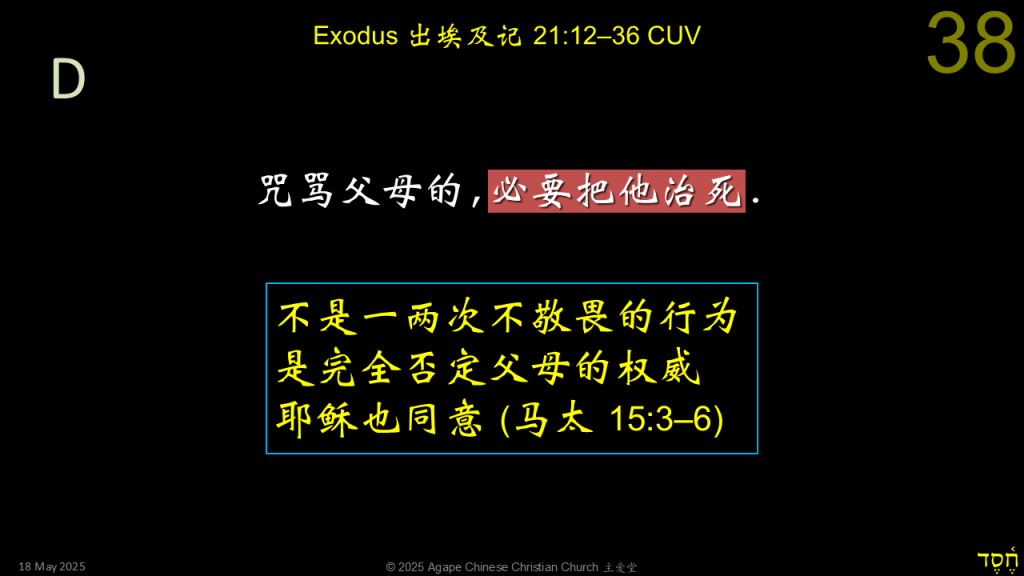
Not just disrespectful once or twice,
but complete repudiation of parents’ authority.
Jesus agreed with this principle, as in Matt 15:3–6
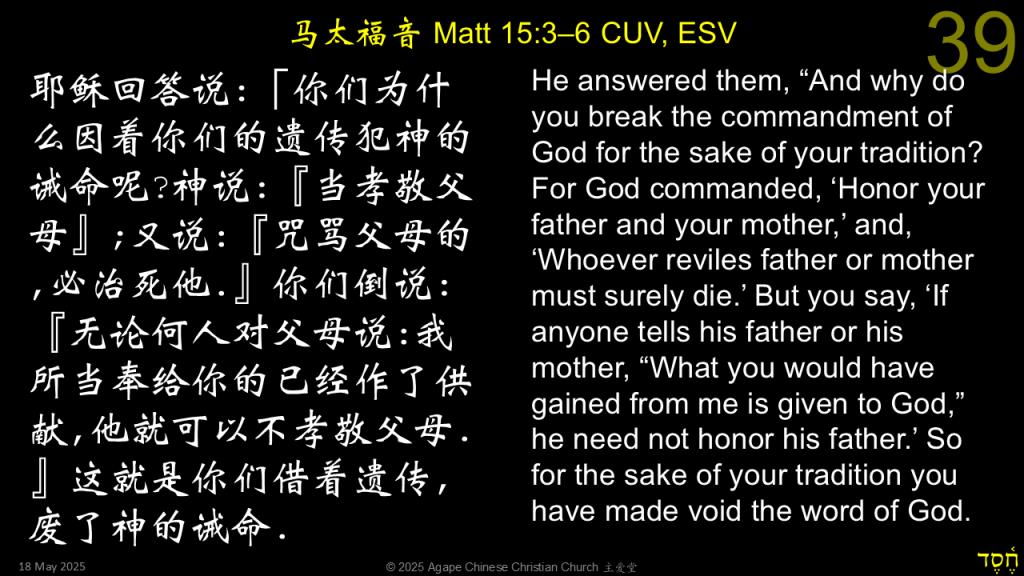
Repudiation of parental authority, disrespectful of parents, all in the name of religion (piousness) and tradition.
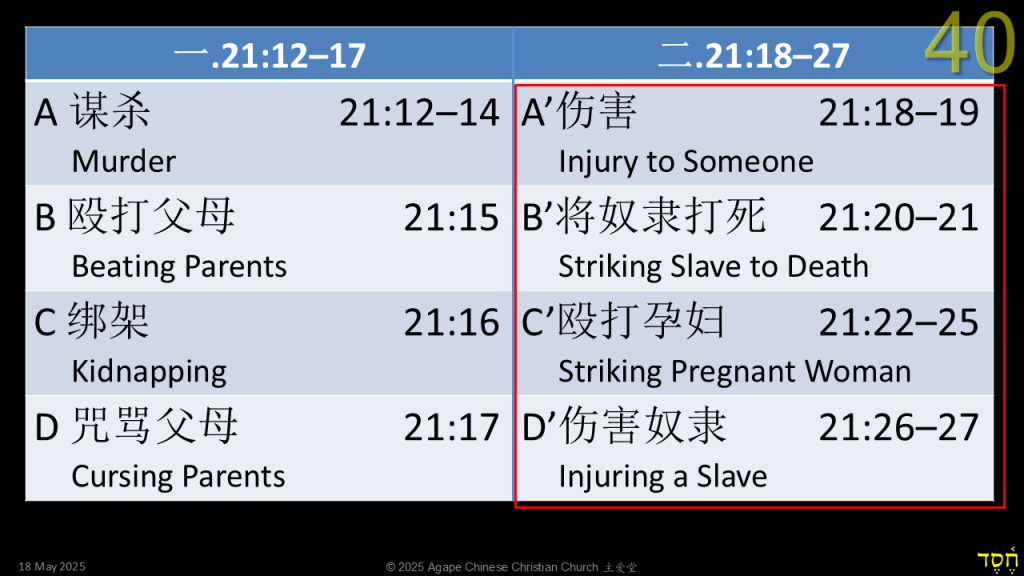
First part about capital crime.
The next part (Exo 12:18–27) is about personal injury.
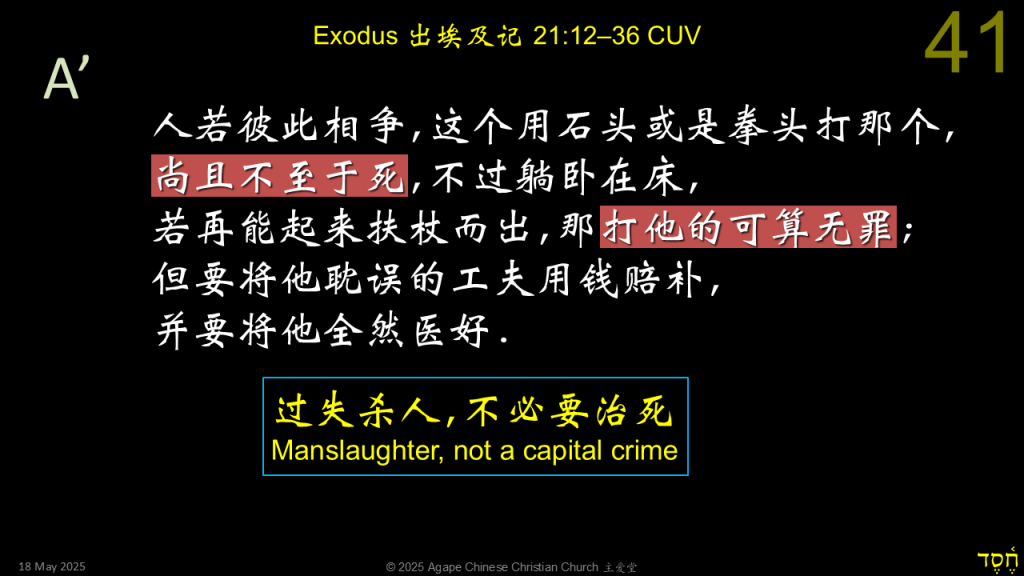
s
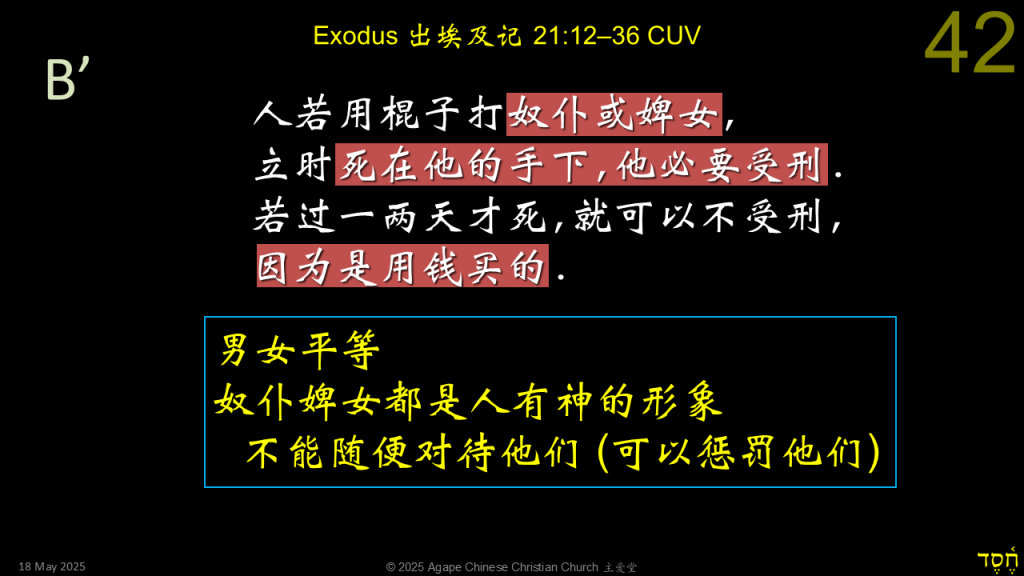
s
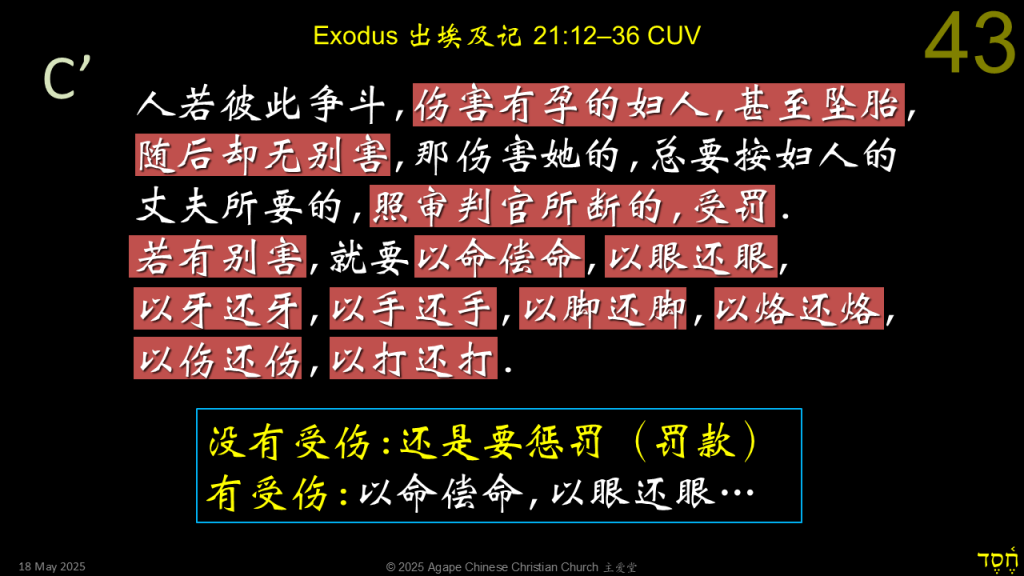
The punishment must fit the crime.
It doesn’t mean we inflict the same injury to the perpetrator.
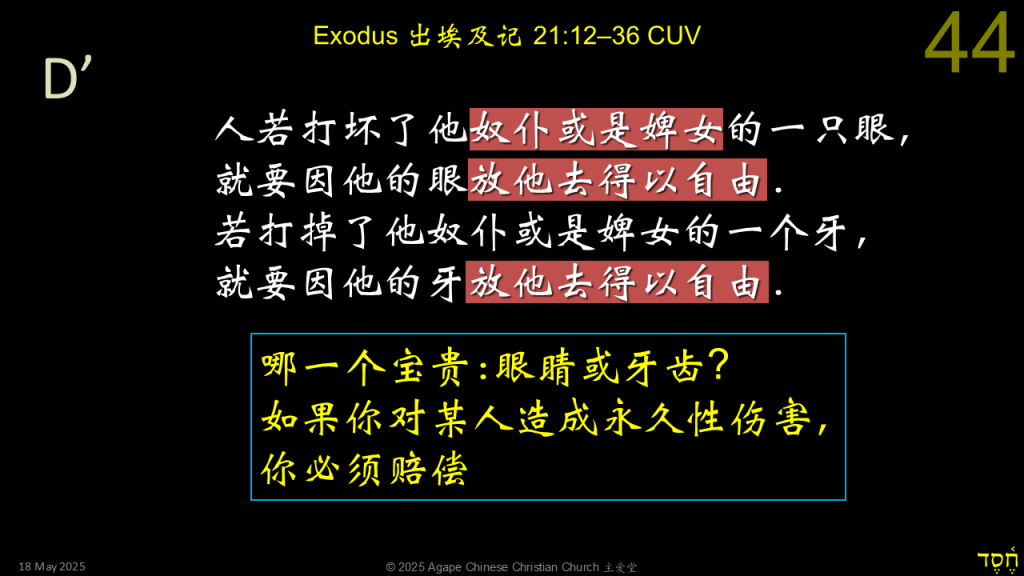
Which is more valuable to you: eye or tooth? Would you rather lose an eye or a tooth?
if you permanently injure someone, you must pay.
When you permanently injure your slave, you’re no longer fit to be a master.
You must let your injured slave go free.
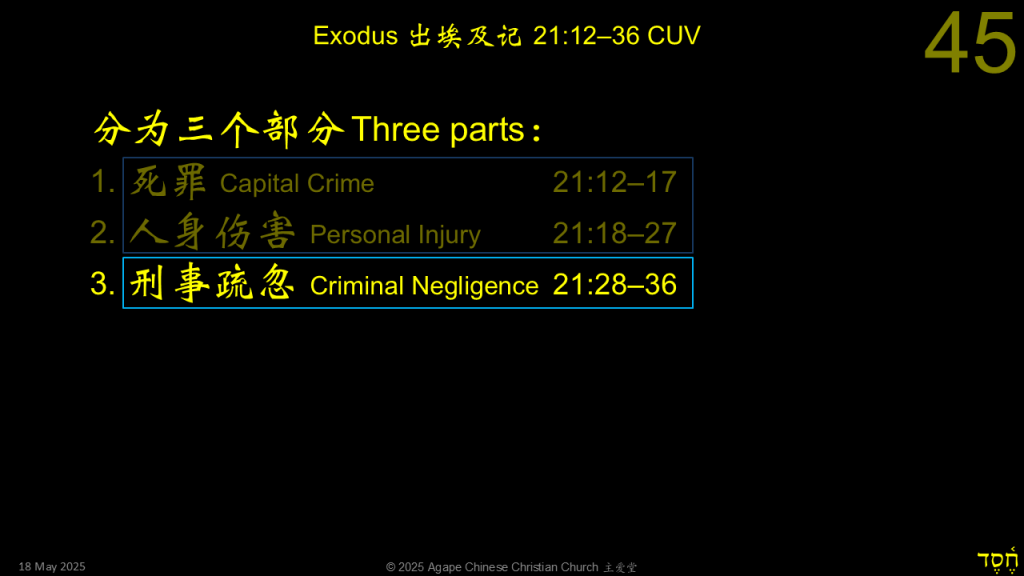
s

News story from Montreal, June 2016
About a pit bull mauling a woman to death.

This is the house where the woman was mauled to death by a neighbour’s pit bull.
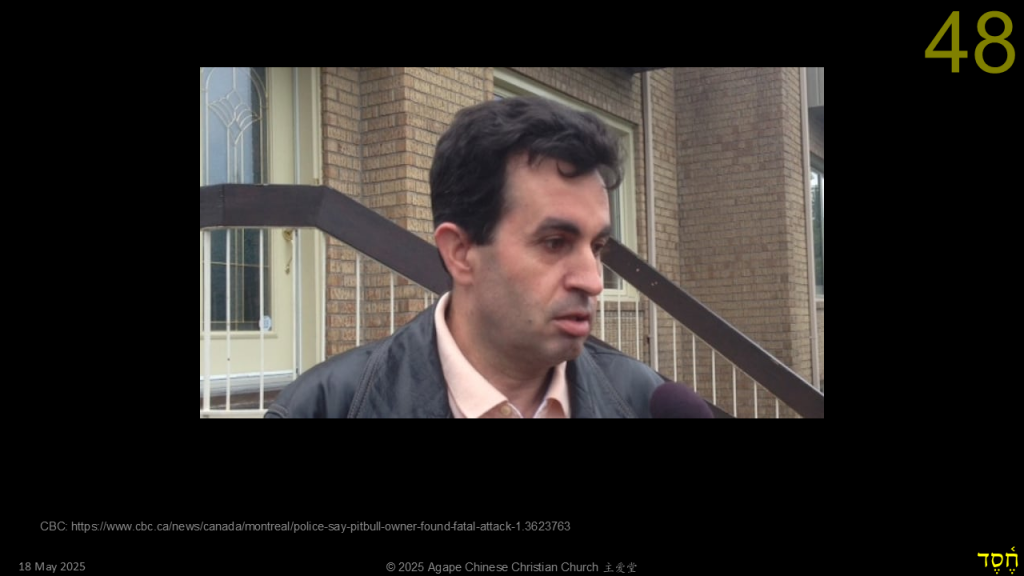
The neighbour who first saw the body when he got home.
He couldn’t sleep all night because of what he saw.

The backyard where it happened.
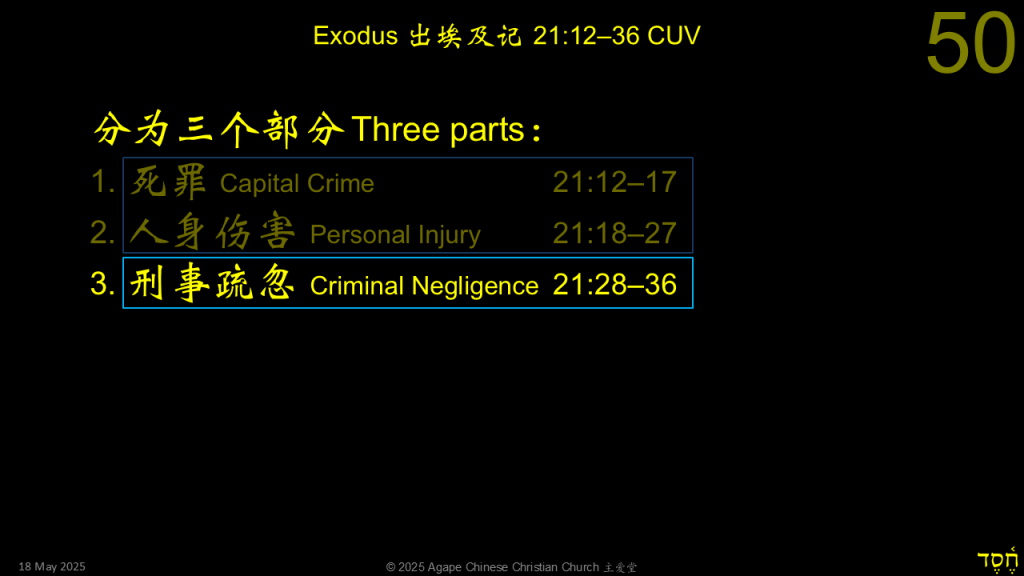
We come to the final part (the 3d part), laws about criminal negligence.
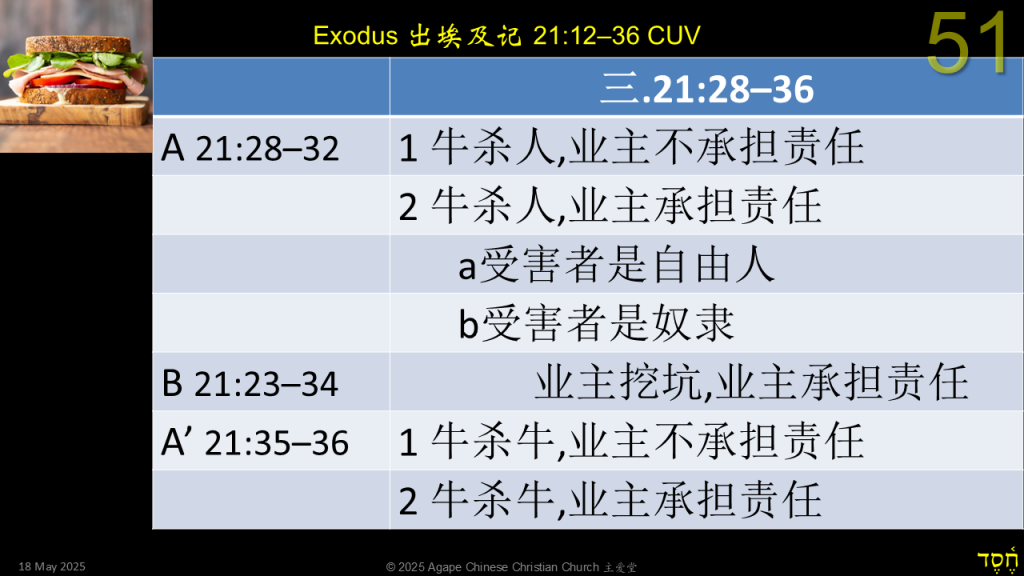
s
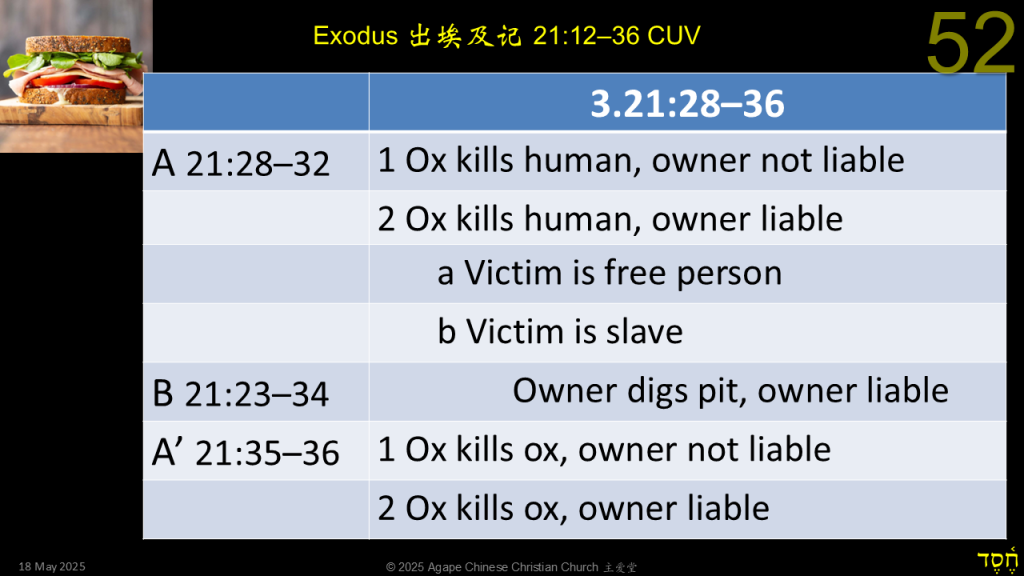
d
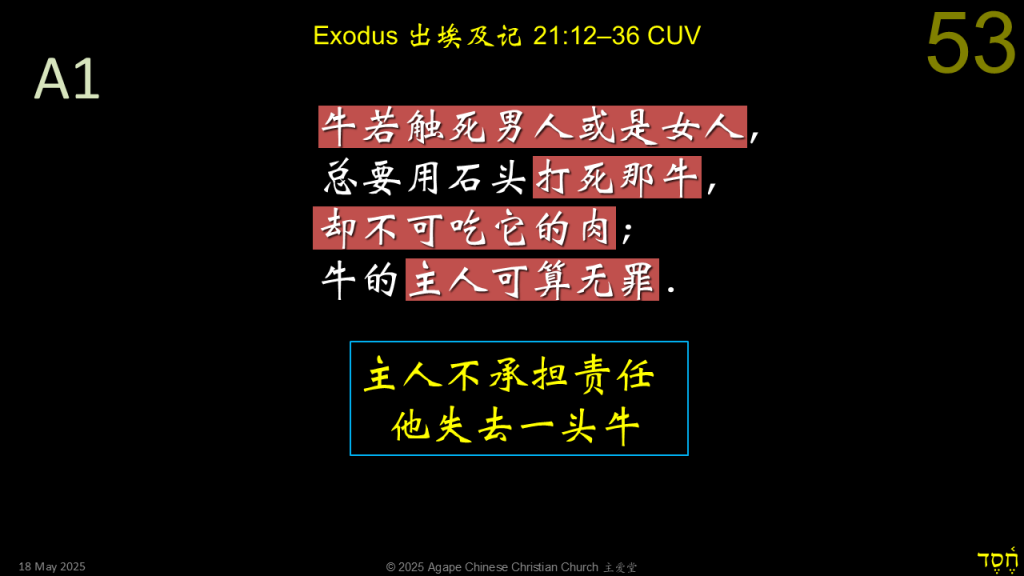
Owner is not liable, but he loses the ox.
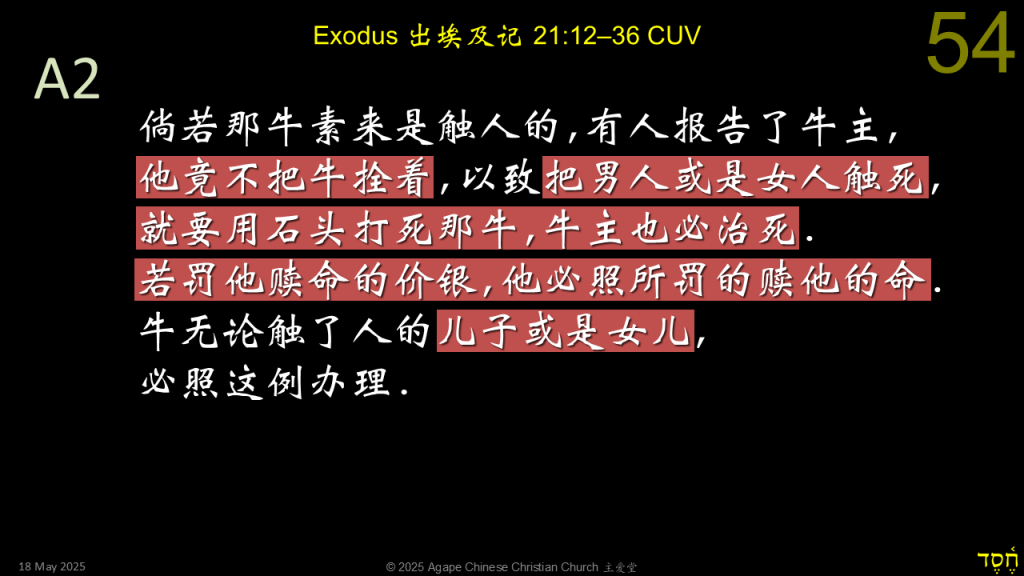
The ox is known to gore people, but owner didn’t restrain it. So owner is liable.
Notice it always specifies “male or female.” This is so different from other cultures in Canaan.
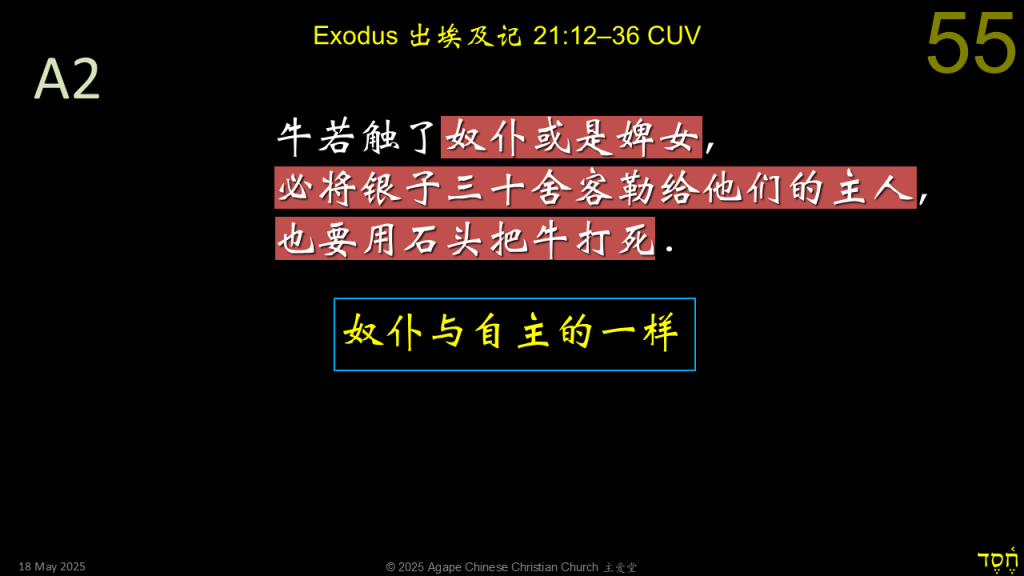
s
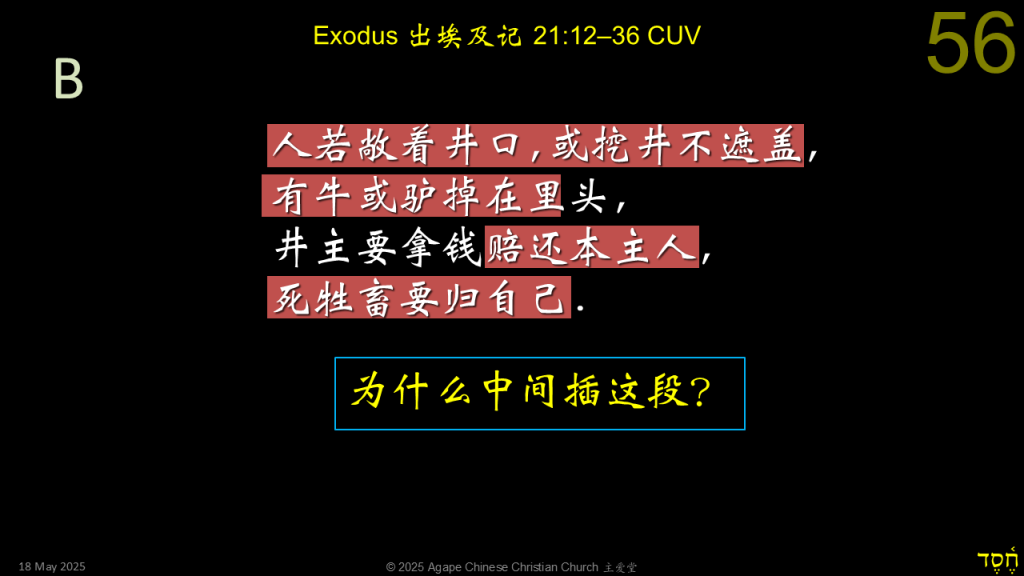
Why insert this paragraph about not covering up a pit?
Won’t it be more logical to just continue with A’?
That’s what many Bible critics said, but God has a good reason to insert this.
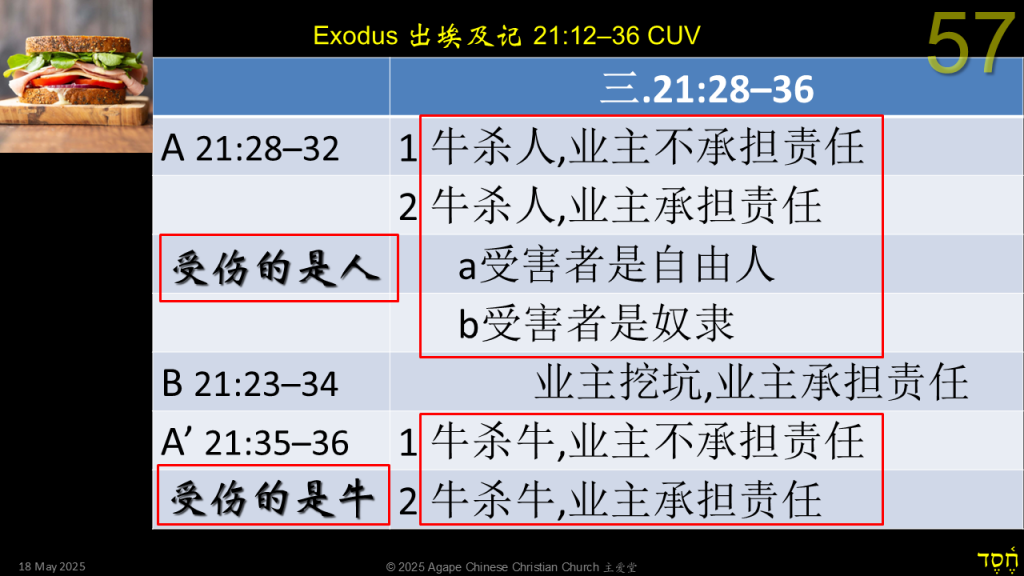
It’s to make a separation between humans and animals.
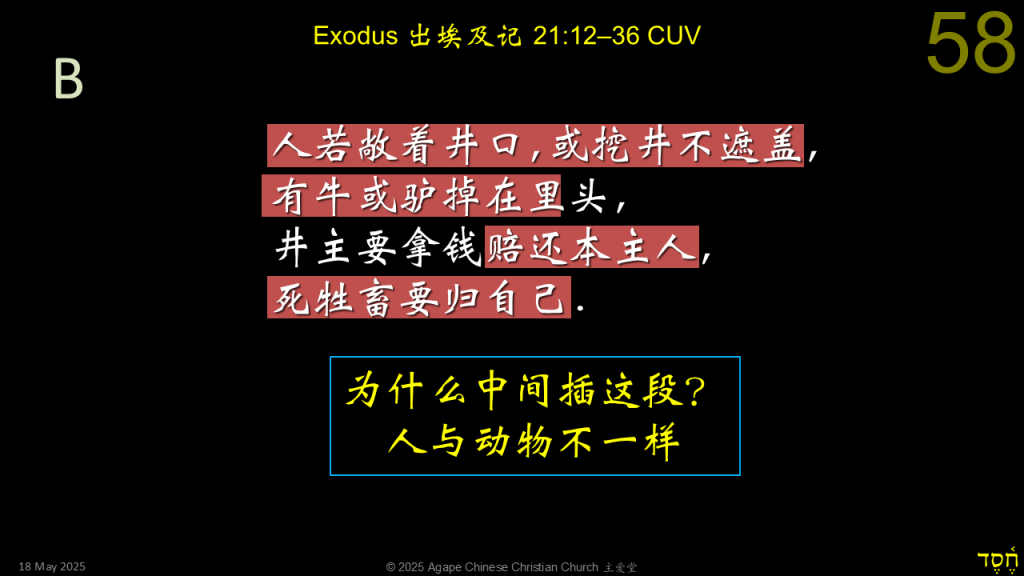
Humans are not the same as animals, don’t ever put them on the same footing.
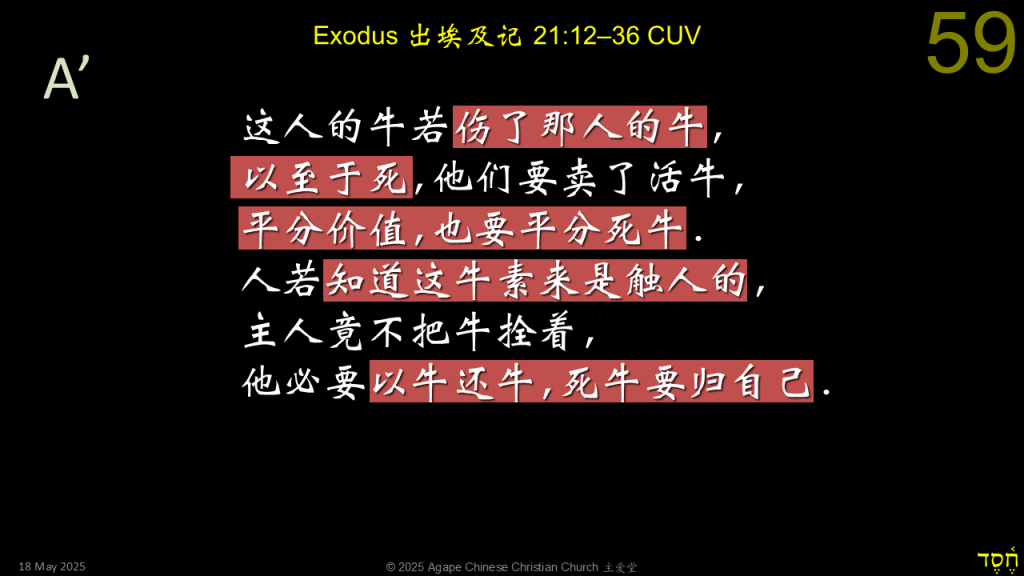
s
与我有什么关系? So What?
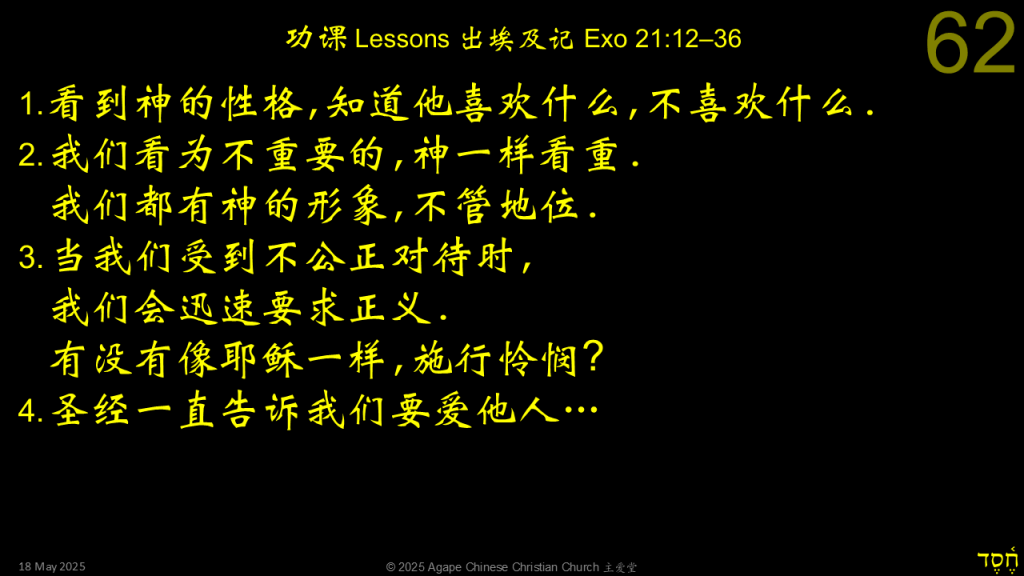
- We can see a bit of God’s character, we know what he likes, what he doesn’t like.
- People that we look down on, God sees as important.
We’re all made in God’s image (Gen 9:6), no matter our station or status in society. - When we’re wronged, we’re quick to demand justice.
Shouldn’t we be more like Jesus, showing mercy? - The Bible kept telling us to love others (which is a sign that we don’t do it as often as God liked!)
What can I do to show love to others…?
